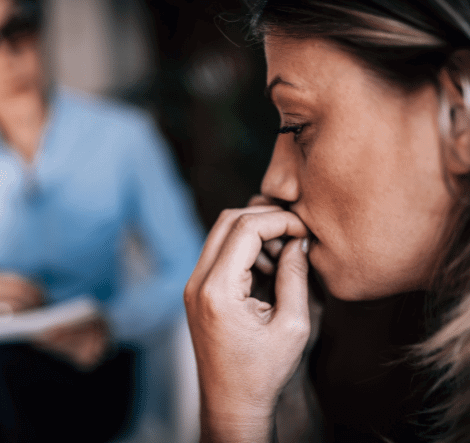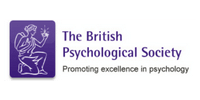Anxiety Disorder
Are you suffering from high levels of anxiety? Do you want to feel calmer and more in control?
There are many different types of anxiety disorders, each with there own unique set of symptoms. But there are effective anxiety treatments in London available for all of them.
Anxiety disorders are the most common type of mental health problem in the United Kingdom, affecting 9 million adults age 18 and older, or 7.8% of the population.

What is Anxiety
Anxiety is a normal emotion that we all feel at times. It’s what we feel when we’re worried or nervous about something.
Everyone experiences anxiety at different points in their life for different reasons perhaps you were anxious about an exam, having a job interview, waiting for results, or losing your job. Though this is uncomfortable this is normal. For most people, anxiety is short-lived and passes within a few minutes or hours.
But for others, it can be more long-lasting and persist for days, weeks, or even months.
When anxiety is severe, it may become an anxiety disorder. Anxiety disorders are real, serious medical conditions – just as real and serious as physical disorders such as heart disease, diabetes, and asthma.
To get help for an anxiety disorder, it is important to recognise the symptoms of an anxiety disorder.
What is an Anxiety Disorder
Anxiety disorders are a group of mental disorders characterised by feelings of anxiety, fear, and uneasiness.
Anxiety disorders can be debilitating, making it difficult to carry out everyday activities. But with treatment, most people with anxiety disorders can manage their symptoms and live normal lives.
There are many different types of anxiety disorders, each with there own set of symptoms. But there are effective treatments available for all of them.
Symptoms of Anxiety Disorders
Symptoms of anxiety disorders can vary depending on the type of disorder, but common symptoms include:
- feelings of panic or fear,
- difficulty controlling worry,
- increased heart rate and breathing, and
- sweating or shaking.
Other symptoms may include sleep disturbances, irritability or mood changes, concentration difficulties, and headaches or stomach aches.
If you are experiencing any of these symptoms, it is important to seek professional help. A mental health professional can help you to understand your symptoms and develop a treatment plan.
Anxiety disorders often occur alongside other mental health disorders, such as depression or substance abuse. This is known as comorbidity.
Types of Anxiety Disorders
There are many different types of anxiety disorders, each with their own unique set of symptoms. But there are effective treatments available for all of them.
The most common types of anxiety disorders are:
Generalised Anxiety Disorder (GAD):
This is the most common type of anxiety disorder, characterised by high levels of anxiety that are not triggered by any specific event and can involve worry about many different areas or events.
Panic Disorder:
This type of anxiety disorder is characterised by sudden and unexpected episodes of intense fear, often accompanied by physical symptoms like chest pain, heart palpitations, shortness of breath, or dizziness.
Specific Phobias:
This type of anxiety disorder is characterised by an irrational fear and avoidance of a specific object or situation, like heights, enclosed spaces, flying, animals, etc.
Social Anxiety Disorder:
Also known as social phobia, this type of anxiety disorder is characterised by intense fear and avoidance of social situations, like public speaking or meeting new people.
Post-traumatic Stress Disorder (PTSD):
This type of anxiety disorder is characterised by flashbacks, nightmares, and intrusive thoughts related to a traumatic event, like a car accident or military combat, however these are not the only types of events to lead to PTSD any event that a person experienced to be traumatic can lead to these experiences and symptoms.
Obsessive-Compulsive Disorder (OCD):
This type of anxiety disorder is characterised by intrusive and unwanted thoughts (obsessions) that lead to repetitive behaviours (compulsions).
Causes of Anxiety Disorders
It is not known exactly what causes anxiety disorders, but they are thought to be a combination of genetic, psychological, and environmental factors.
Risk factors for developing an anxiety disorder include:
- Family history of anxiety or other mental disorders
- Exposure to stressful or traumatic events
- Use of certain medications or drugs
- Poor coping skills or ineffective problem-solving methods
- Low levels of GABA, a neurotransmitter that plays a key role in calming the nervous system.
Getting Support for Anxiety Disorders
There are many effective anxiety disorder treatment available in London at Alinea Psychologies for anxiety disorders, including cognitive behavioural therapy, medication, natural remedies like exercise and meditation, and lifestyle changes.
Talking Therapies
Cognitive behavioural therapy (CBT Therapy) is a type of psychotherapy that can help you manage your anxiety by changing the way you think and behave. Other styles of therapy such as psychodynamic, existential, humanistic/ person cantered and schema therapy can also be used depending on the cause and type of anxiety. We can help you break this down and find the best treatment or combination for your specific needs.
Medication
Medication can be used to treat anxiety disorders, although it is not always necessary. The most common type of medication used to treat anxiety disorders are antidepressants, which can help to improve mood and relieve symptoms.
Self Help
Natural remedies like exercise and meditation can also be effective in treating anxiety disorders.
Exercise can help to release endorphins, which have mood-boosting effects, and meditation can help to focus and calm the mind.
Making lifestyle changes, such as getting enough sleep, eating a healthy diet, and reducing stress, can also help to reduce anxiety.
If you are struggling with an anxiety disorder, it is important to seek professional help. There are many resources available to help you get the treatment you need.







